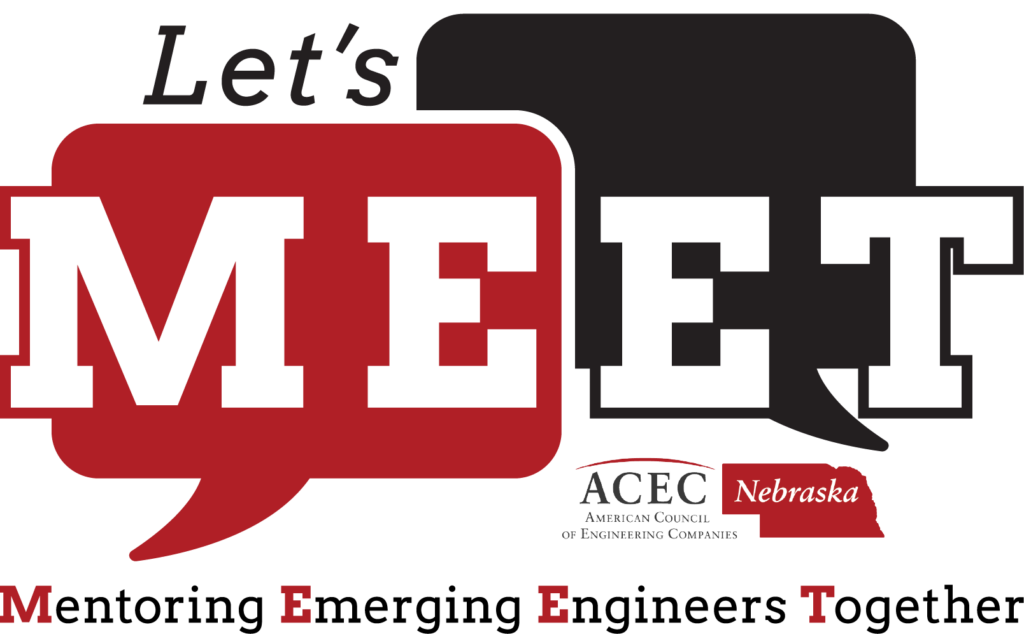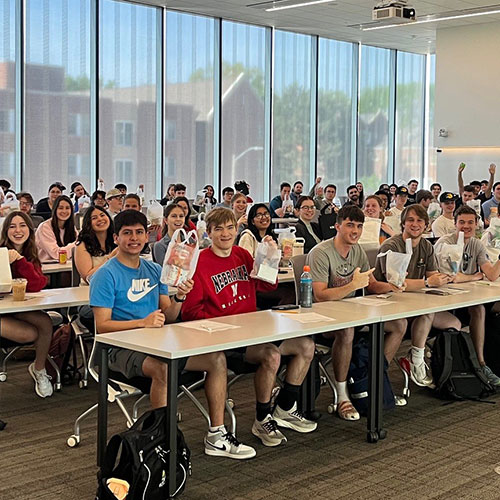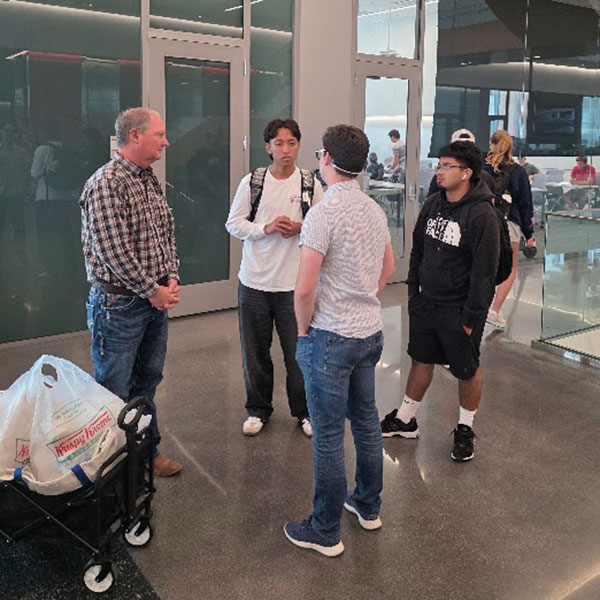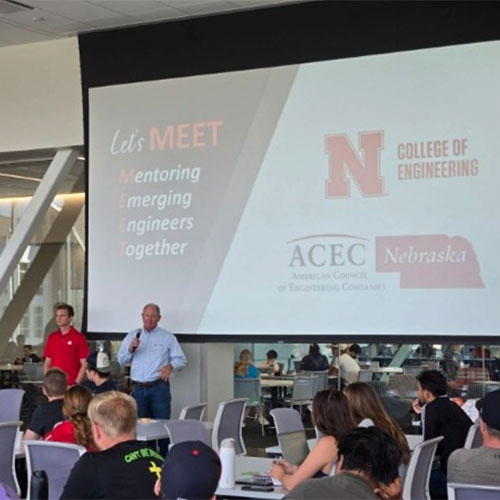MENTORING EMERGING ENGINEERS TOGETHER (MEET)
MEET PROGRAM
Let’s MEET (Mentoring Emerging Engineers Together) is a collaboration between ACEC members firms and the University of Nebraska, aimed at establishing a mentorship initiative that caters to freshmen and sophomore engineering students. This program is designed to support these new students in navigating the new challenges of college life and the rigorous engineering curriculum. Its primary objective is to enhance student retention within the engineering program.




Praise for the MEET Program
“Meeting regularly with two extremely talented freshman students was something I found beneficial for my personal career development as it gave me another opportunity to interact with potential future employees and understand their interests while providing them a glimpse of the real world as an engineering consultant.”

“The value added from the ACEC MEET Program for students is tremendous. From my first days as a freshman, I was paired with a mentor who’s been in the same place as me. My mentor was (and continues to be) a fantastic resource for any question, concern, or curiosity, and was a fundamental influence in my decision making freshman year. The MEET Mentors have been there and done that, and I attribute the success of my first years to my mentor’s support.”

“The mentorship program has been an incredible bridge between our students and the profession. I have seen students gain confidence, direction, and valuable connections within the program. Some students have found internships and chosen their career paths because of their mentors. It is inspiring to see many of these relationships continue well beyond the program and help shape the next generation of civil engineers.”

Department of Civil and Environmental Engineering
College of Engineering University of Nebraska–Lincoln
"Having a mentor from industry who encouraged me, gave me insight and advice, and was able to relate to me was crucial to my success the first two years of college. I was challenged to grow in new ways as a mentee and through that I established a relationship with an engineering profession that will last throughout my career."

Civil Engineering | Kiewit Scholar Class of 2027
ASCE Recruitment Coordinator
"With my mentor’s guidance, I connected with an engineer I deeply admired, whose advice helped shape my professional path. Through her support, I earned an AISC scholarship and attended the national conference in Louisville, KY—an experience that opened invaluable doors in both industry and academia."

College of Engineering

